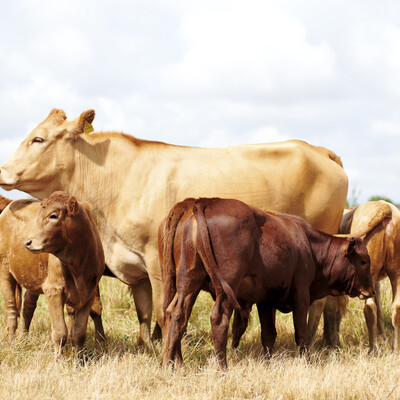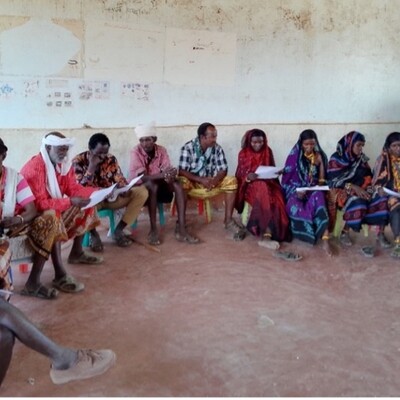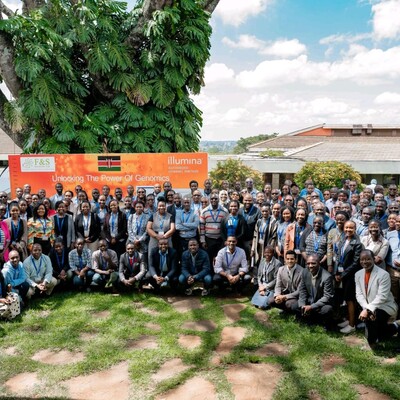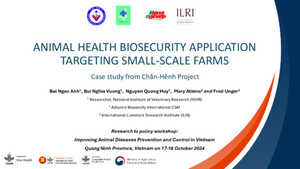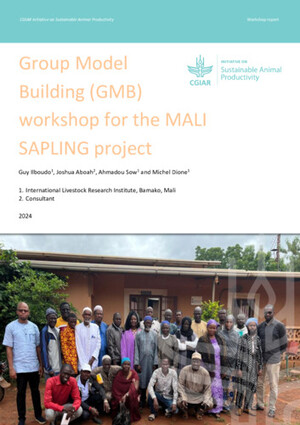
New consortium aims to better diagnose, monitor and clinically manage current and future epidemics in Africa
Over the next four years, the newly launched GenPath Africa (Genomic surveillance to control pathogen infections in Africa) project will receive five million euros from the European Union under its research and innovation program, Horizon Europe.
The project is supported by the Global Health EDCTP3 Joint Undertaking and is one of six projects that form a newly created genomic epidemiology network to advance the impact of genomic surveillance in Africa and globally.
GenPath Africa is coordinated by Tulio de Oliveira of Stellenbosch University, South Africa. The consortium of epidemiologists, clinicians, bioinformaticians, immunologists, and virologists aims to use genomic epidemiology to address important public health issues in Kenya, Mozambique and South Africa such as HIV-1, tuberculosis and antimicrobial resistance.
The project will also quickly survey and respond to epidemics that are being amplified by climate change such as Rift Valley fever. Through its project activities, GenPath Africa will strengthen capacities to combat drug resistant HIV-1 and tuberculosis through precision medicine and use genomic epidemiology to guide the public health response.
As part of its One Health approach the project will also conduct early warning in wastewater and animal surveillance to detect emerging pathogens.
‘Despite the rapid expansion of genomic sequencing capacity and increased genomic surveillance during the COVID-19 pandemic, the global response to SARS-CoV-2 illuminated the barriers that prevent the world from having readily available, reliable, and comprehensive genomic data to aid public health decision-making. Specifically, the ability to rapidly analyse and interpret the data for public health impact is severely limited,’ said de Oliveira.
‘We need to plan for future pandemics by increasing genomic surveillance to other pathogens in Africa to be able to quickly detect new emergent epidemics. The GenPath Africa team are well-placed to apply genomic epidemiology to impact on current and emerging epidemics in southern and eastern Africa.’
Other members of the consortium are the National Institute of Health of Mozambique, the International Livestock Research Institute (ILRI) in Kenya, the Global Health Institute at the University of Antwerp in Belgium and LINQ management GmbH in Berlin, Germany.
ILRI's robust genomics platform will use wastewater-based surveillance to track pathogens in Kenya and South Africa, and optimize Rift Valley fever virus and Mycobacterium tuberculosis genomic surveillance at the animal–human–ecosystem interfaces.
Appolinaire Djikeng, ILRI director general, emphasized: ‘In the face of climate change, Africa confronts food, nutrition and infectious disease challenges in both humans and animals. ILRI is committed to advancing genomic technologies and building African capacity, which is not only timely but also critical in strengthening our efforts against pathogens on the continent.'
Sam Oyola, senior scientist at ILRI who leads the One Health component of GenPath Africa, says: ‘ILRI's genomics facility is best placed to support regional activities on pathogen surveillance and pandemic preparedness, given the experience on COVID-19.'
'ILRI’s genomics platform is designed to develop and apply advanced technologies in predicting, detecting, tracking and controlling emergence, re-emergence and spillover and spread of pathogens through a One Health approach.'
In its mission to advance the impact of genomic surveillance, GenPath Africa has strong partners by its side. It is one of six projects that were created to form a genomic epidemiology network in sub-Saharan Africa.
Together, this powerful new partnership aims to
- increase the use of genomic epidemiology across Africa to answer critical public health questions;
- create data platforms through which integrated epidemiologic, clinical and genomic data can be collected and combined;
- implement selected pilot projects that apply genomic epidemiology to specific disease areas and use the results to inform public health decision-making and product development; and
- establish a community of practice, training programs and fellowship opportunities in genomic epidemiology on the continent.
About GenPath Africa
GenPath Africa is a 48-month project funded by the European Union under its research and innovation program, Horizon Europe. It is supported by the Global Health EDCTP3 Joint Undertaking, which builds on the first and second European and Developing Countries Clinical Trials Partnership (EDCTP) programs. This new joint undertaking is a partnership between the European Union and the EDCTP Association, whose members are several European and African countries. The partnership will deliver new solutions for reducing the burden of infectious diseases in sub-Saharan Africa and strengthen research capacities to prepare and respond to re-emerging infectious diseases in this region and across the world.
Learn more about GenPath Africa: https://www.genpath-africa.org.
About the International Livestock Research Institute
The International Livestock Research Institute (ILRI) is a non-profit institution working for better lives through livestock. ILRI delivers science-based practices, provides scientific evidence and develops capacity in livestock development. Working in extensive partnerships, ILRI helps people in developing countries keep their farm animals alive and productive, increase their livestock and farm productivity in sustainable ways, find profitable markets for their animal products, and reduce the risk of livestock-related human diseases. Employing more than 600 staff and operating an annual budget of about USD 100 million, ILRI is co-hosted by Kenya and Ethiopia and operates 11 other regional (4) and country (7) offices in Africa (Senegal, Mali, Burkina Faso, Nigeria, Uganda, Tanzania and Zimbabwe) and Asia (India, Nepal, China and Vietnam). Australian animal scientist Peter Doherty, a former ILRI board member and co-winner of the 1996 Nobel Prize for Physiology or Medicine, serves as ILRI's patron. ILRI is a member of CGIAR, a global research-for-development partnership conducting research in 13 centres/alliances in close collaboration with hundreds of partners for a food-secure future.






